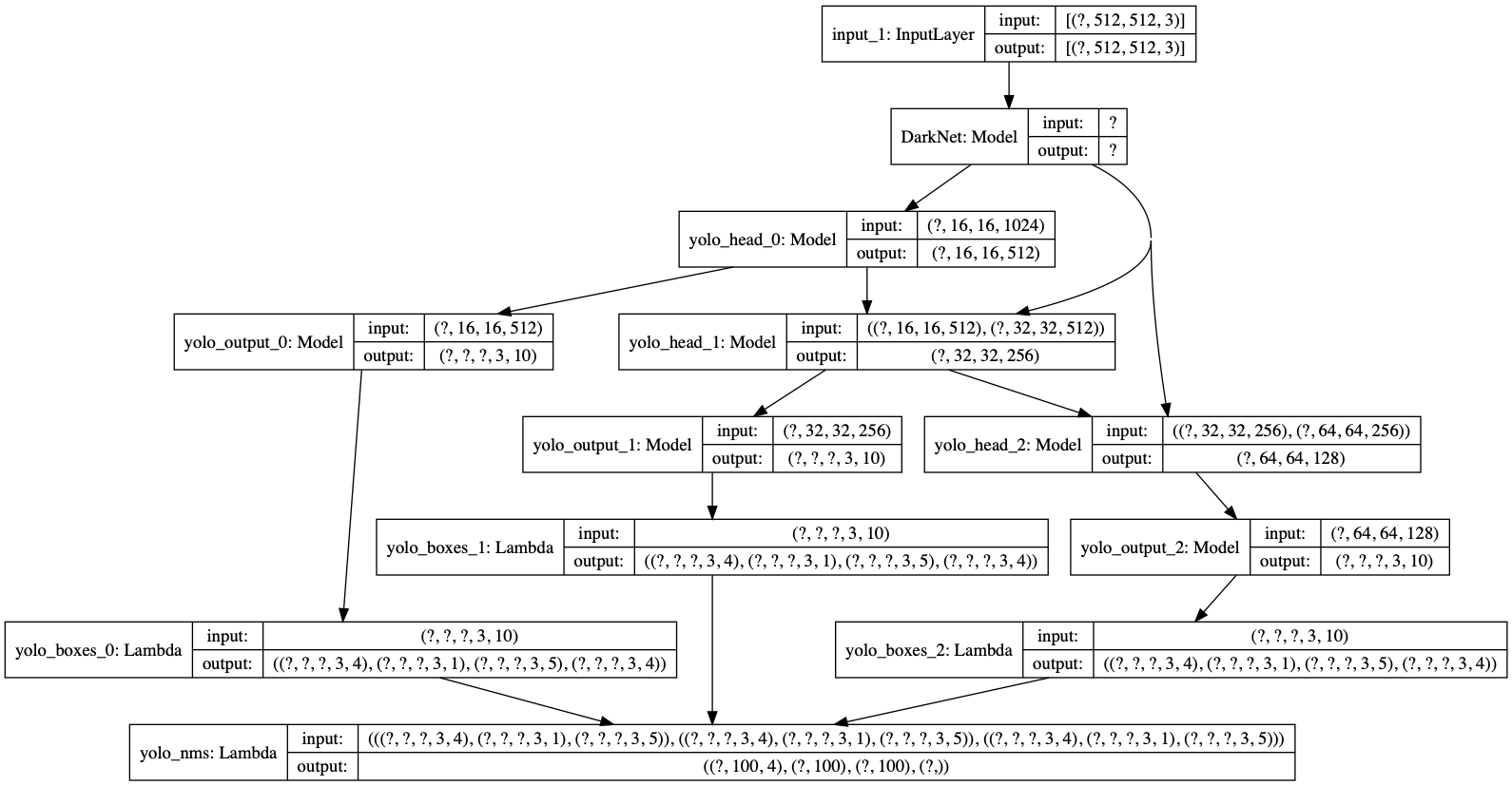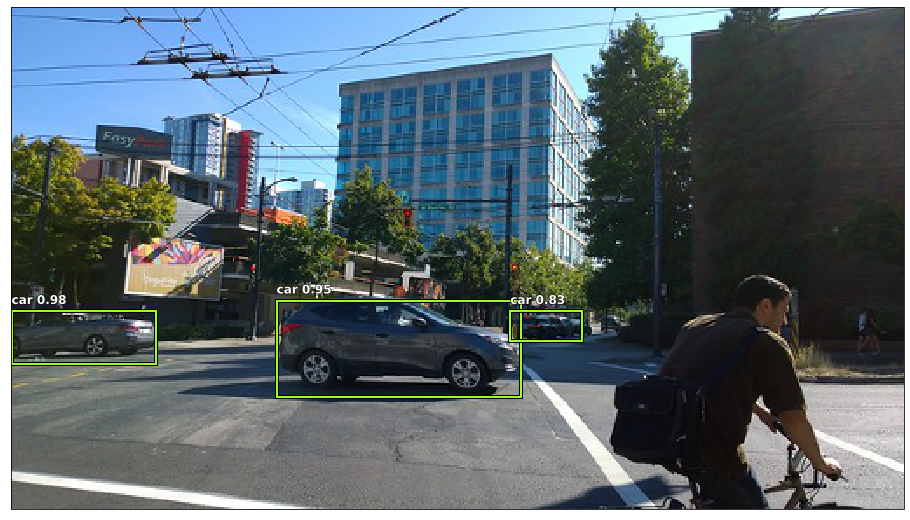import sys
if '..' not in sys.path:
sys.path.append('..')
import tensorflow as tf
from ultrayolo import YoloV3, datasets
from ultrayolo.helpers import draw
from pathlib import Path
import numpy as np
import logging
from matplotlib import patches
import matplotlib.pyplot as plt
Predict using a custom Model¶
The classes contained in the dataset
classes_dict = datasets.load_classes('./custom_classes.txt', True)
target_shape = (512, 512, 3)
max_objects = 100
num_classes = len(classes_dict)
print(f'number of classes {num_classes}')
classes_dict
number of classes 5
{0: 'book',
1: 'bus',
2: 'car',
3: 'motorcycle',
4: 'vehicle registration plate'}
model = YoloV3(target_shape, max_objects,
num_classes=num_classes, score_threshold=0.7, iou_threshold=0.7,
training=False, backbone='DarkNet')
tf.keras.utils.plot_model(model.model, show_shapes=True)

Load the weights¶
load a custom model from here
w_path = Path('./weights.117-9.932.h5')
model.model.load_weights(str(w_path))
# model.load_weights(w_path)
Predict¶
we predict the objects using an image from the web. You can try with your.
Download an image¶
img = datasets.open_image('https://c8.staticflickr.com/4/3901/14855908765_8bdda9130b_z.jpg')
# img = datasets.open_image('https://lh6.googleusercontent.com/proxy/Jo961aR6HemjY-D0TKiVEkVlI7b84uTkfJHSFBCz4UN2maJidjYVznbPrxDpRDd6wlbqn80ZmP_ohdCPkE9syrVJPIjiYvgbo9ovRAArlFC_9Sm4V3NZi--R')
img_pad = datasets.pad_to_fixed_size(img, target_shape)
img_resized = datasets.resize(img, target_shape)
#preprocess the image
x = np.divide(img_pad, 255.)
x = np.expand_dims(x, 0)
x.shape
(1, 512, 512, 3)
Perform the prediction¶
boxes, scores, classes, sel = model.predict(x)
print(f'found {sel[0]} objects')
found 3 objects
Uncomment the cells below to see what the model returns
boxes[:,:sel[0],:]
scores
classes
Show the image with the discovered objects¶
ax = draw.show_img(img_resized, figsize=(16,10))
for i,b in enumerate(boxes[0,:sel[0]]):
draw.rect(ax, b, color='#9cff1d')
name_score = f'{classes_dict[classes[0, i]]} {str(round(scores[0,i],2))}'
draw.text(ax, b[:2], name_score, sz=12)
print(classes_dict[classes[0, i]], scores[0,i])
plt.show()
car 0.97570795
car 0.9543877
car 0.83372337
